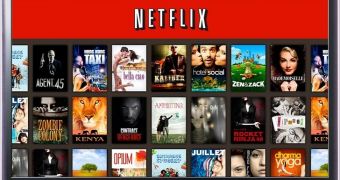Netflix has been working for a while to completely change the user interface of its platform, but it hasn’t really reached that point. Now, Neil Hunt, chief product officer, has once again said that the current navigation scheme will be left behind to make room for personalized recommendations.
“Our vision is, you won’t see a grid and you won’t see a sea of titles,” said Hunt, during a keynote, TechCrunch reports.
What will you find when you visit Netflix then? Well, it looks like the platform will deliver more and more personalized recommendations, although thinking that you’ll just turn on Netflix and it will start playing exactly what you had in mind is unrealistic.
However, after a while, it should be able to start predicting what you like and present you with a handful of choices, which is a lot more reasonable than the extremely busy screen that users see at the moment.
The fact that Netflix is heading in this particular direction shouldn’t really come as a surprise considering that it’s been working on delivering a more personalized service for a while now. Last year, it introduced personalized profiles, which enabled people in the same household to access content to their own liking.
The new idea seems to be an extension of this project and it makes sense that this is the direction that Netflix wants to go in.
Furthermore, during the same keynote, Hunt predicted that Internet TV would end up freeing TV shows from current format constraints because they would no longer need to mind advertising Brackets as they do on TV. The regular 21 or 42-45 minutes per episode will become a thing of the past.
Hunt also spoke about the elephant in the room – net neutrality – the hot topic of the past few months. The company has been pushing for net neutrality, working on its own, as well as with others by signing an open letter to the FCC alongside nearly 150 other companies.
The exec argues that creating an Internet fast lane “feels like double dipping,” referring to the fact that consumers are already paying for Internet service at a certain speed. Basically, ISPs get money from two sources at the same time – consumers and the content creators.
The controversial set of regulations proposed by the FCC has been protested against by countless companies, citizens and even members of the Committee, but Tom Wheeler still went forward with the faulty plan.

 14 DAY TRIAL //
14 DAY TRIAL //